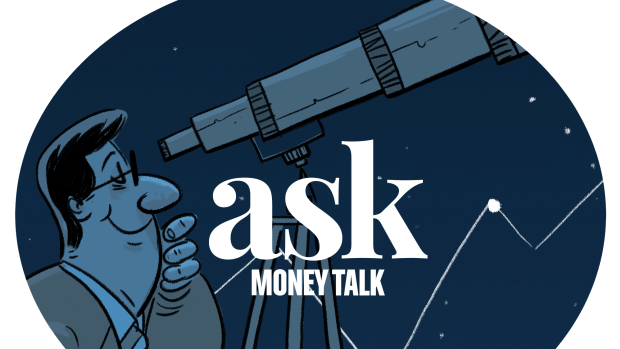Nov 13, 2019
MoneyTalk: What should I do if there’s a recession?
Presented by:


I keep hearing experts say we may have a recession. Should I get my money out of the market?
OK, I’ve been intricately involved with the markets throughout my career and nothing keeps me awake at night more than knowing there are people pulling investments out of the market when they think there’s bad news and waiting to jump in again when they think conditions are right.
So, short answer: Regardless of whether there’s a recession on the horizon, talk of poor economic news just distracts from focusing on the things that may make your investment plan successful — including a steady, long-term outlook.
A recession is a natural part of how an economy works. And after every recession to date there has been an economic expansion that has more than made up for the previous declines. Quick proof? From 1962 until today, Canada has survived four recessions — officially judged as two consecutive quarters of negative economic growth — and every single time the economy has come back with strong growth.1
In fact, from 1985 to 2018 we’ve seen eight stock market downturns. One of my first jobs in the investment industry was as an equity trader during the crash of October 1987 when I thought the world was falling before my eyes. Yet the S&P/TSX Composite Total Return Index has returned about 250% in that time period.2 The point is, if you are out of the market when growth occurs, you miss out.
I don’t like to view investing as a game we can decide to play one day and watch from the stands the next. Studies show that if you missed the four best positive days in the market every year, it can dramatically weaken your portfolio.3 Always being invested means you benefit from the power of compound growth over the decades. If your goal is saving for comfortable retirement, you won’t want to miss any chances over time to have great returns. Investing can be a life-long enterprise — but you can’t win when you stay on the sidelines.
Even if you’ve moved the bulk of your investments into GICs, with inflation at about 2% and most GICs now earning less, that decision will actually give you a negative return after inflation. GICs have their place but they don’t have a major role in a long-term growth portfolio.
But let’s talk about what I call the “Tweet Retreat” — a tendency to react to every blip of negative news we absorb in social media or elsewhere. You can easily get rattled by trade wars and Brexit and talk of a recession. These things can be scary — but in part because we let them. The reality is that the economy is healthy, we’re in the midst of the longest bull market in history and U.S. unemployment is the lowest it’s been in 50 years.4 All that is great for investors, and that’s the news I would be listening to.
Finally, if you’re worried that a recession or any other negative news might harm your investments, don’t let your emotions get the better of you; think about staying in the market. And if you’ve gotten spooked and are waiting for the best time to get back in, consider that it might be now — there are only so many growth periods in a lifetime.
Look at it this way: A traffic delay can ruin your morning, but if you pull over, you’ll never reach your destination. In the same way, market blips can be meaningless in the course of a lifetime of investing, provided you stay on the journey.
Ingrid Macintosh has spent her three-decade career working on all sides of the investment industry, institutions, advisors and investor alike.
1 Brian DePratto, “Canadian ‘Solo’ Recession Risk: Rhetoric vs Reality,” TD Economics, Mar. 1, 2019, accessed Oct. 11, 2019, economics.td.com/canadian-solo-recession-risk.
2 “Market Ups and Downs,” Feeling Confident About Investing, TD Asset Management, 2018, accessed Oct. 11, 2019.
3 The Power of Staying Invested, TD Asset Management, 2018, accessed Oct. 11, 2019, www.tdassetmanagement.com/document/PDF/news-insight/Power_Staying_Invested_en.pdf.
4 James Marple, Admir Kolaj, “Slower Growth, But a Patient Fed Will be Supportive of Commercial Real Estate in 2019,” TD Economics, Mar. 11, 2019, accessed Oct. 17, 2019, economics.td.com/us-cre-outlook









